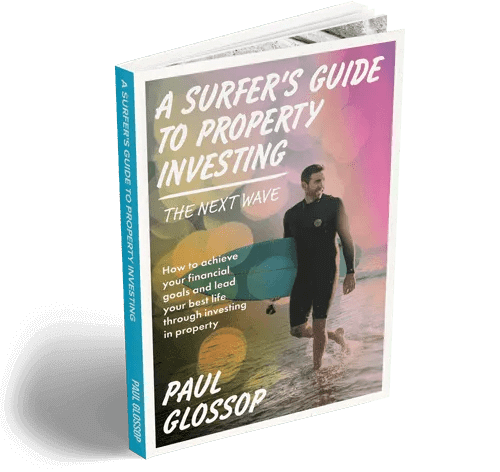Paul Glossop: Welcome guys to Pure Property Investment one on one. We here today with Jeremy Iannuzzelli, who is a partner at Keshab Chartered Accountants. He’s also a quite enthusiastic property investor with a size property portfolio himself. Speaking of which today we really want to discuss quite topically end of financial year and when it comes down to property investors looking to claim potential deductions. Record keeping is key. And if you don’t have a record of it, realistically you shouldn’t be claiming it. So what I wanted to hopefully chat with Jeremy today about is some of the ways tips and tricks that you can keep good records of your property investments ongoing.
Jeremy Iannuzzelli: Fantastic. Look record keeping is very important. The ATO are a business and they there to collect our taxes and they obviously there to provide any refunds which people are due. So important that we do keep very I would say tight and stringent record of expenses as well as income. The ATO do have the right to request any potential receipts that we have put through our tax return. So, I like to personally utilize filing, electronic filing as well as Excel. I’m a big Excel fan. When managing quite a large and diverse range of properties, we need to make sure we keep tract of our expenses. And that’s just not putting receipts into a folder but also moving that data into an Excel summary which can provide you with I suppose real life information about how the property is tracking.
So you Paul, being a property professional in the buyer’s agency arena, in the property concierge arena, you look to see how your client’s properties are travelling on a month by month bases. And to get all that data and information you would like to see that on a nice collated data spreadsheet. So what I’ve done personally for my own portfolio is I’ve spoken with other accountants as well as looked at the return itself and said “Well, what things do I need to put in an Excel summary?” So that I being the accountant, doing the tax return, can see it quite easily and I being a property investor can collate that data and extract what I need to.
So, I suppose having the information that you collect from your property manager or getting your property manager to pay a large some of the expenses you comfortable with, helps because it is documented on a very easy summary that they do provide for you at the end of the year. But also transferring that data of expenses that you’ve paid together with what the property manager has provided you and putting that onto Excel. Just to see what your monthly or quarterly or half yearly or yearly position is on that particular property investment will make you a better investor. And it will give the professionals around you a better look at a more in depth look into how your property portfolio is performing.
Because as we like to say property investment is not just a plan that we make today and we don’t change it, it is evolving, it is changing and the professionals around you need to see that data not only just for the tax return to be completed but the right advice moving forward for different properties which would suit you in your investment strategy. So I suppose that is the real reason as to why I like to keep records for myself very I suppose up to date, very easy to read and very easy to understand because it does make it easier for the professionals come tax time but also come review time as well when you are looking for that new property in your portfolio.
Paul Glossop: Mate, it’s a very good detailed summary that. And for me it probably speaks volumes the fact that being a property investor a professional property investor is a business. And if you have a different mindset other than saying “I want to run this as a business and make sure my expenses are only expenses that I need to pay” Or potentially they looking at maximizing your returns in that investment an also record keeping and making sure that you don’t just know your PNL’s or your end of financial year’s, on your profits, your loses on a 12 monthly bases.
Breaking that down and understanding quarter one, quarter two and quarter three quarter four and potentially break down on a monthly or weekly bases. Because cash flow even from an earnings perspective if you on a PAYG or a business owners position, you need to know how much money is going to forked out versus how much money is going come in on a weekly, monthly, fortnightly, quarterly bases. And I think some people, unfortunately sometimes maybe get a little bit too potentially complacent and not necessarily pragmatic enough to say “I really want to know where my money is going in and coming out.” Not just at the end of the financial year say “Here’s my summary, here’s how much that property cost me or made me in the year”. Probably being how to plan a little bit more methodically saying “How much it cost me per quarter or per month or per week.” And that way you can plan your next purchase and all subsequent purchases thereafter.
But mate, great advice and I think there’s things that really property investors should think about and there’s absolute litany of different apps and software opportunities for people to have control of there in goings and outgoings these days as compare to even ten years ago. So there’s no excuse for being a lazy investor. Just because you run as a business, doesn’t mean it need to be super labor intensive. You can realistically try to outsource and plug in a lot of these data to software and different apps and systems that can do this work for you.
So worthwhile having a chat with Jeremy or myself about different options out there guys and I will see you again soon. Cheers!






